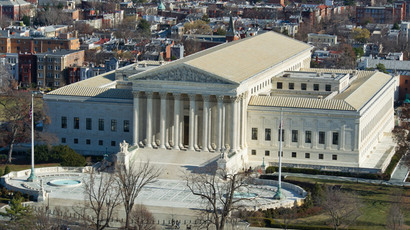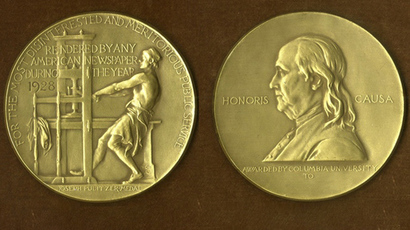Threatened New York Times journalist ordered to appear in court - report

A federal judge has ordered New York Times reporter James Risen to appear in court to answer questions about his book on CIA efforts to subvert Iran’s nuclear program. Risen has long resisted government threats over his refusal to reveal a book source.
According to an anonymous US official cited by CBS, prosecutors will ask Risen about his 2006 book, "State of War," as well as two New York Times articles in late 2001 and early 2002.
“They will ask him to confirm that both the book and articles are accurate, as far as he knows,” CBS reported.
The Tuesday order comes days after the US Department of Justice decided not to force Risen to reveal an intelligence community source in “State of War.” Risen had been told repeatedly by the US government that he would have to offer evidence about who gave him the information, but he has refused to officially provide the name of his source, saying that it would be a breach of his civil liberties and press freedom.
“State of War” addressed how the CIA tried to project a negative image of Iran’s nuclear program under the presidency of George W. Bush. Risen was allegedly given the information by Jeffrey Sterling, a former Central Intelligence Agency employee who was later charged under the Espionage Act for allegedly disclosing CIA secrets to Risen.
According to CBS, prosecutors “will also ask Risen to confirm that Sterling was an on-the-record source for his 2002 article, though they will acknowledge that Risen's book included confidential arrangements with his source.”
Many, including civil liberties advocates and fellow Pulitzer Prize winners, have asked the US government not pursue an “illegal case” against Risen, a two-time Pulitzer Prize-winning reporter, as his supporters believe that it will be in violation of his First Amendment freedom of speech rights.
Risen’s supporters point to the hypocrisy of the Obama administration’s harsh crackdown on press leakers and whistleblowers, all while US officials routinely leak information that shows the administration in a positive light. For example, as TechDirt pointed out, the New York Times’ report on Friday that Risen would not be forced to reveal his source was fueled by “a person familiar with the decision.”
The Obama administration has been criticized for using the punitive, World War I-era Espionage Act - more twice as often as every other President since 1917 combined, in fact - to punish whistleblowers who leak classified government information to journalists, in effect chilling press freedoms.














